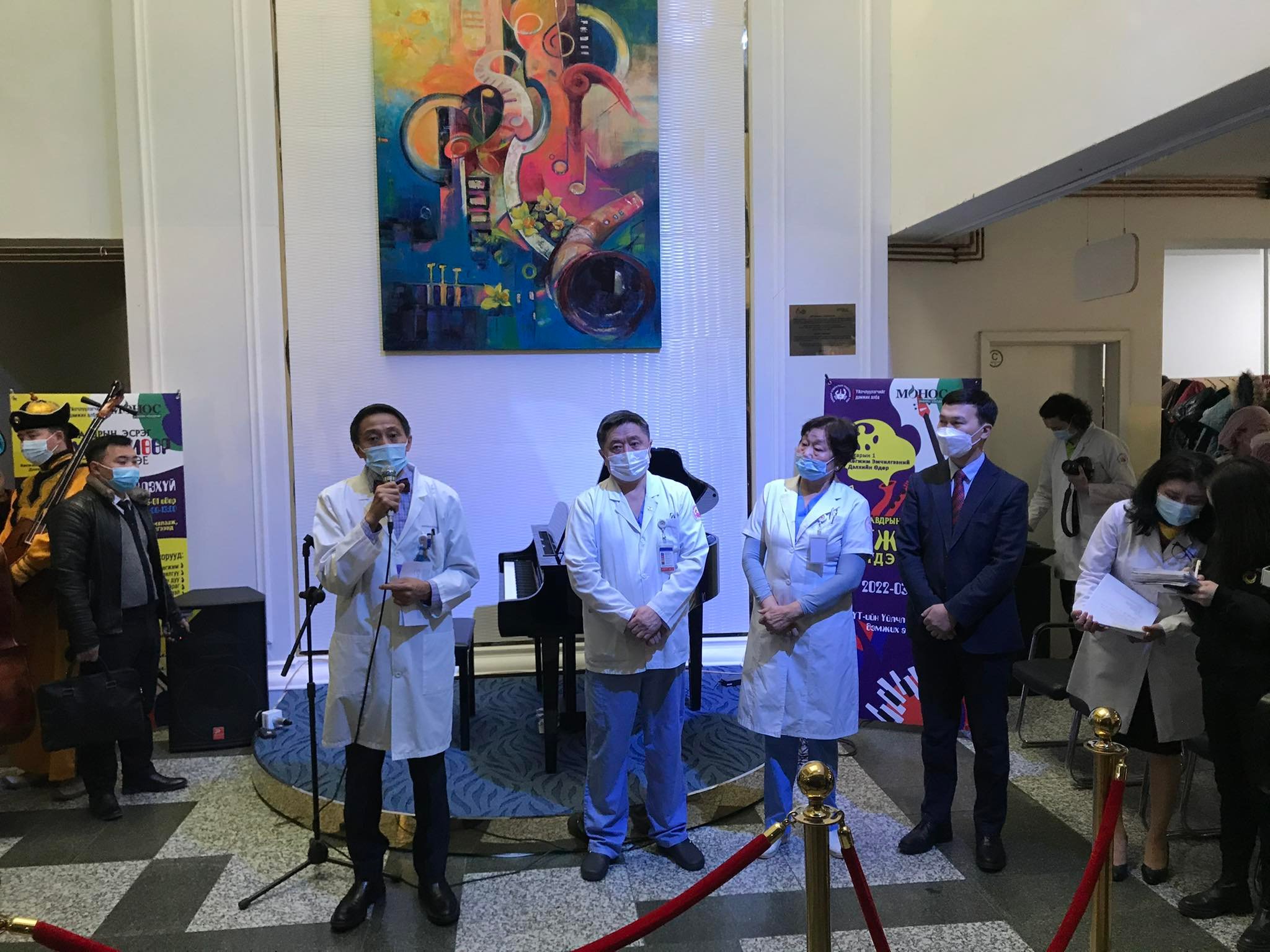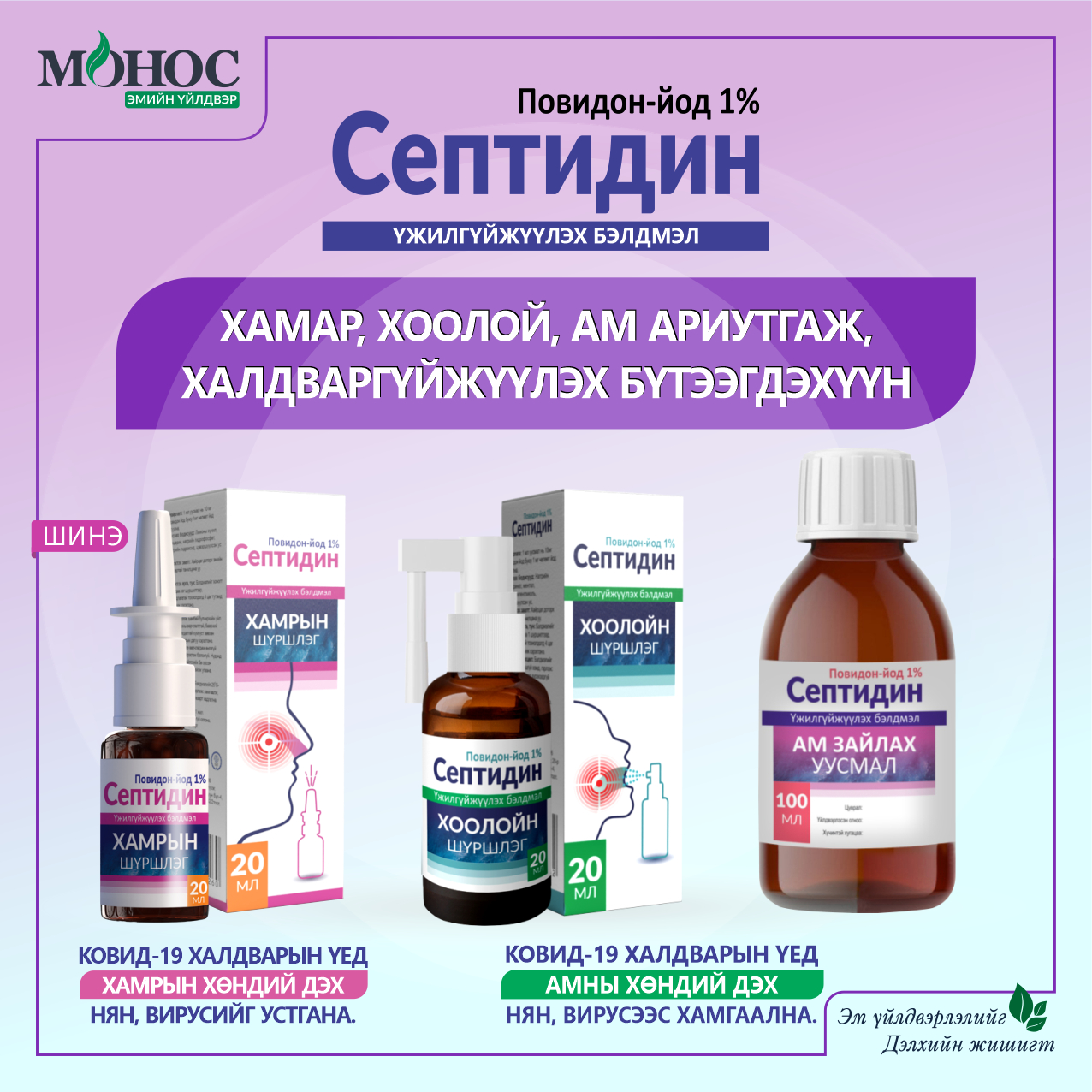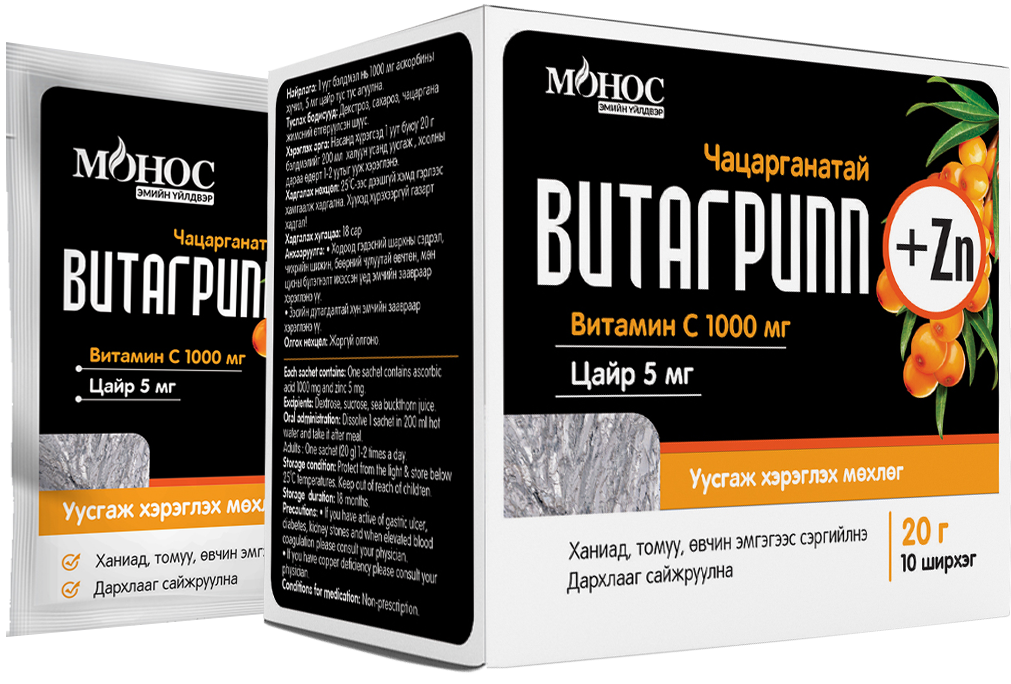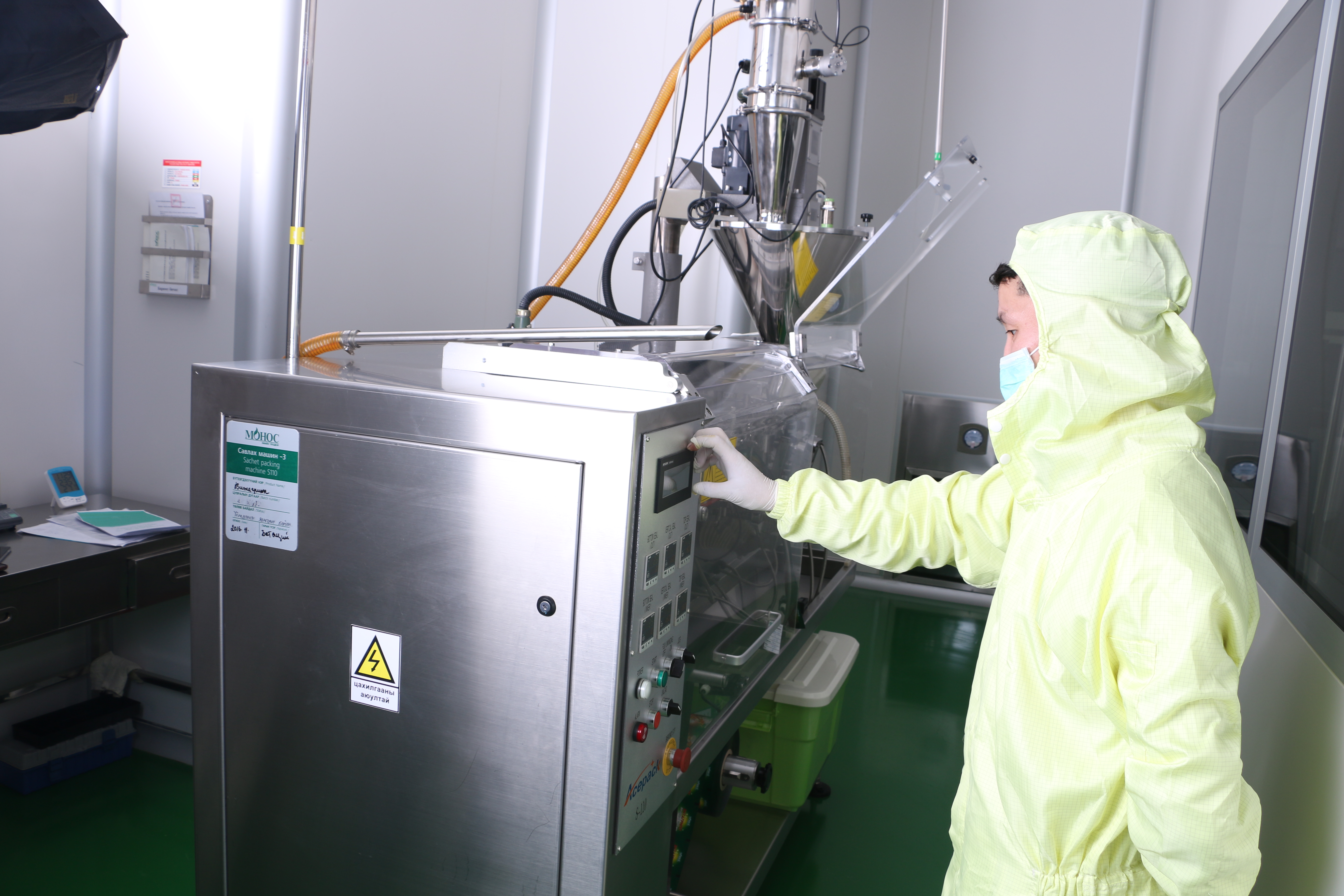ХАРШЛЫН ТУХАЙ МЭДЭХ ЁСТОЙ 10 ФАКТ.
Урин дулаан цагтай зэрэгцээд дэлгэр зуны жаргалтай өдрүүдийг сүйтгэдэг нэгэн томоохон дайсанг харшил гээд хэлчихэд болно. Хүн бүр байгаль дэлхийд амарч зугаалж бөөн бөөн энерги авах хүсэлтэй ч ургамлын харшил өвчний тархалт жилээс жилд нэмэгдсээр байна. Олон арван хүмүүсийг зовоож буй харшлын талаарх 10 баримтыг хүргэж байна.
- ХАРШИЛ ГЭНЭТ БИЙ БОЛЖ ГЭНЭТ АЛГА БОЛЖ БОЛНО
Харшил буюу хүний дархлалын систем өөрөө ажиллаж эхэлдгийн гол “буруутнуудын” нэг нь гистамин нэртэй бодис юм. Энэ болон үүнтэй төстэй бодисууд нь харшлын хариу урвал эхэлсэн үед цусанд их хэмжээгээр орж ирдэг. Yр дvнд нь судас өргөсөх, нарийн судаснаас шингэн ялгарах, арьс улайна. Үүнээс болж хамар, залгиурын салслаг бvрхvvл цочрон хамар битvvрч, нус гойжин, найтааж эхэлдэг.Харамсалтай нь харшилтай холбоотой олон зүйл өнөөдрийг хүртэл тайлагдаагүй л байна. Жишээлэхэд, харшил нь гэнэт бий болоод, гэнэт алга болж болно.
2. ХАРШЛЫН ӨВЧИН ХАЛДАХГҮЙ, УДАМШДАГ
Харшлын өвчин халдахгүй. Хүүхэд эхээс төрөхдөө эцэг, эхийнхээ харшламтгай байдлыг удамлан төрдөг. Тэр харшламтгай байдал нь хожим харшлын өвчин болж илэрдэг. Гэхдээ сайн хамгаалж чадвал бага зэргийн харшлын урвал илрээд, намдах нь ч бий. Эцэг эхийн аль нэг нь харшилтай бол хvvхдэд нь өвчлөх магадлал 25% тай бол хоёулаа харшилтай бол харшил авах магадлал 75-80% хувиар өсдөг.
3. ХАРШЛЫН ҮЕД ДАРААХ ШИНЖ ТЭМДЭГ
Хаана, хэрхэн vvсч байгаагаас нь шалтгаалан харшил нь ринит буюу нус гоожих, коньюктивит буюу салст бүрхүүлийн үрэвсэл / нүд улайх, нуухтах, нулимс гоожих / , чонон хөрвөс, Квинкийн хаван, дерматит буюу арьсны үрэвсэл, гуурсан хоолойн багтраа буюу астма, анафилактик шок зэргээр илэрнэ. Эдгээр шинж тэмдгvvд илэрсэн тохиолдолд яаралтай харшлын эмчид хандах хэрэгтэй. Хоол хүнсний харшлын шинж тэмдгийн 80 хувь нь арьсны тууралт, үлдсэн нь амьсгалын замаар илэрдэг. Харшлын шалтгаанаас хамаарч илрэх шинж тэмдэг харилцан адилгүй.
4. ХАРШЛЫН ХАМГИЙН МУУ ХУВИЛБАР БОЛ АНАФИЛАКТИКИЙН ШОК
Харшлын урвалын vйл явцын хамгийн муу хувилбар нь анафилактик шок юм. Энэ үг нь ana-эсрэг ба philaxis-хамгаалалт гэсэн утгатай грек үгнээс бүрддэг бөгөөд гэнэтийн цочролд орохыг хэлдэг. Ихэнхдээ таарахгvй эм хэрэглэх, эсвэл зөгий мэтийн элдэв шавьжинд хатгуулж, хазуулсны дараа vvсдэг. Анафилактикийн шоконд орох үед арьс гэнэт маш ихээр загатнан, амьсгаа боогдож артерийн даралт огцом буурч шоконд орно.
Бас нэгэн шинж тэмдэг нь судасны лугшилт маш сул болж, царай цонхийнх хvйтэн хөлс асгардаг. Ингэж шоконд орсон үед заримдаа уушиг болон тархинд хаван vvсч vхэх аюлтай байдаг.
5. ХУУРАМЧ ХАРШИЛ ГЭЖ БАЙДАГ
Бие махбодид таарч тохирохгүй бодистой холбоотой бөгөөд гадаад шинж тэмдгээрээ яг жинхэнэ харшилтай тун төстэй \хавдах, загатнах, чонон хөрвөстөх гэх мэт\ гэхдээ энэ тохиолдолд дархлалын тогтолцоо тэдгээрийг тогтоож авдаггүй.
Бие организмд гистамины өндөр тун vйлчилснээс vvссэн хуурамч харшил. Гистаминаар баялаг хvнсний бvтээгдэхvvн их хэмжээгээр хэрэглэх, зарим төрлийн эм уух, элэг болон гэдэсний зарим өвчний үед ажиглагддаг.
Жинхэнэ, хуурамч аль алиныг үүсгэдэг бодис ч бас байна. Тиймээс та харшилтай болсон эсэхээ шинжлүүлж мэдээрэй. Стресс орох тоолонд харшлынхтай адил шинж тэмдэг илрэх нь үүний нэг жишээ. Бодисын солилцооны хэвийн ажиллагаа алдагдахад vvсэх хуурамч харшил.
6. ХАРШИЛ ҮҮСГЭГЧИЙГ ТОДОРХОЙЛЖ БОЛНО
Харшил үүсгэгч буюу аллергенийг тодорхойлохын тулд арьсны сорил, онцгой эсрэг биетийг шинжлэх арга, өдөөгч тестvvд, элиминационны тестvvд, хvйтэн ба халууны тестvvд болон бусад аргуудыг хэрэглэдэг.
7. ХАРШЛЫН СОРИЛЫГ НАМЖМАЛ ҮЕД ХИЙДЭГ
Поллинозийн хурцадмал үед харшлын сорил тавиулж болохгүй! Харшлын сорилыг өвчний намжмал үед тавиулдаг. Энэ нь аллергений (харшлуулагч хүчин зүйлийн) спектрийг тодорхойлох энгийн арга бөгөөд Монголд хэд хэдэн харшлын эмнэлгүүдэд орчин үеийн түвшинд оношлож байна.
8. УРГАМЛЫН ХАРШИЛТАЙ БОЛ УГААСАН ХУВЦСАА ГАДАА ХАТААХ ХЭРЭГГҮЙ
Ургамал болгон өөр хоол хүнстэй солбих урвалаар харшил хөдөлгөдөг. Тухайлбал, хус, улиас, бургас модлог ургамлын тоосонд харшилтай бол алим жимс, самар, жимсний харшилтай байдаг. Харин намар болж шарилж, лууль хагдарч унасны дараа цонх болон гэрийн доторхи тавилгаа маш сайн цэвэрлэж ургамлын тоосноос салах хэрэгтэй. Угаасан хувцас, ор хөнжлийн даавууг гадаа хатаахад ургамлын тоос тунадасжин тогтох тул гадаа хатаах хэрэггүй.
9. УРГАМЛЫН ТООСНЫ ХАРШИЛ ХҮНДЭРВЭЛ БАГТРАА БОЛНО
Харшил нь гуурсан хоолойн багтраа өвчин буюу бачуурах, астма өвчин болж хүндэрдэг. Үүнээс урьдчилан сэргийлэх зорилгоор эмчилгээгээ улирал угтуулж хийлгэх ёстой. Энэ тохиолдолд хоолой сэрвэгнэн, ямар нэгэн үрэвслийн шинж тэмдэггүйгээр хий ханиалгаж эхэлдэг. Цаашид ялангуяа тоос шороотой орчинд удаан байвал бачуурч эхлэн астма болох хандлагатай байдаг.
10. ХАРШИЛ ЭДГЭРЭДЭГГҮЙ ЭМЧЛЭГДДЭГ
Харшлын өвчний үед шалтгааны эсрэг эмчилгээ хийдэг. Харшлын эмчилгээнд эмнээс дутуугүй ач холбогдолтой нэг чухал зүйл нь харшлуулагчаас зайлсхийх, түүнийг биеэс гадагшлуулах юм. Харин шинж тэмдэгийн эмчилгээ бол орчин үед сайн хөгжиж сонголт сайтай болсон. Хөнгөн хэлбэрийн харшлын эхний шинж илэрмэгц гистамины хэмжээг бууруулах эмчилгээ хийнэ. Жишээ нь: коньюнктивит, ринитийн үед гистамины эсрэг бэлдмэлийг шингэн цацлага /Ксезолин, Нафазолин спрэй/, дусаалга, тосон түрхлэг байдлаар ил мөн үрлэн хэлбэрээр ууж хэрэглэнэ.
1- р үеийн гистамины эсрэг эмүүд нь /Хлорфенамин, Цетирицин/ төв болон захын Н1 – гистамины хүлээн авагчдад хүрдэг, хүчтэй хурдан үйлчилдэг тул өнөөдрийг хүртэл хэрэглэсээр ирсэн. Гэвч нэлээдгүй сул талтай. Үүнд:
а) Хэт тайвшруулах, унтуулах
б) Удаан хэрэглэвэл дасал болох улмаар үйлчлэх хугацаа богиносох гэх мэт.
2- р үеийн гистамины эсрэг эмүүд нь /Лоратидин буюу Лоратин / зөвхөн захын Н1-гистамины хүлээн авагчдад хүрч үйлчлэх тул унтааруулах шинж өгдөггүй, удаан үйлчилдэг сайн талтай. 24 цагийн турш үйлчлэх тул хоногт нэг л удаа хэрэглэгдэг, тоосны харшилд нэн тохиромжтой. Хэт олон удаа хэрэглэвэл зүрх судсанд муу нөлөөтэй.
Харин хүнд хэлбэрийн харшил /астма, шок/ - н үед зайлшгүй эмчийн зөвлөгөөгөөр эмийн эмчилгээ хийх шаардлагатайг анхааруулья.









